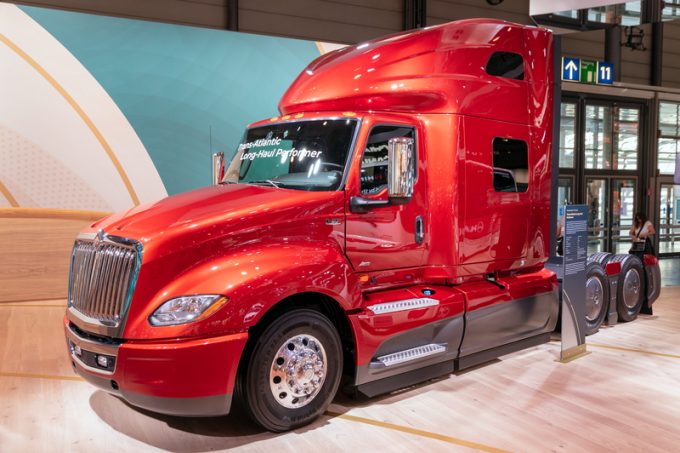BBG: Uber Freight eyes tenfold boost in European Market by 2028
BLOOMBERG reports: Uber Freight is stepping up efforts to expand in Europe’s fragmented logistics market and ...

As many as three-and-a-half billion hours of US trucking could be unproductive, according to Uber Freight.
The trucking platform estimates that between 20% and 35% of the 175bn miles the US trucking industry clocks up in a year are likely driven empty – this is almost double traditional estimates.
Uber Freight’s analysts reckon more than half of these empty miles could be eliminated, resulting in lower costs and a massive reduction in greenhouse gas emissions.
Uber Freight economist Mazen Danaf noted that determining the extent of empty mileage was problematic, and that most published numbers were rather low.
“We find a lot of survey-based statistics report empty miles in the range of 15% to 20%. We think these are significantly under-reported,” he said, and pointed to two issues he claims are are distorting the picture.
To begin with, surveys are prone to under-reporting. Moreover, most concentrate on large and mid-sized fleets and fail to make sufficient inroads into small operators, which constitute the bulk of the truckload sector.
Of the 708,000 active interstate freight carriers registered in 2021, 91% were operating ten or fewer trucks.
“If you’re surveying just the large and medium-sized fleets, they probably have the capabilities to construct optimal networks and to route trucks more efficiently by using algorithms,” Mr Danaf added. “A lot of the smaller fleets and owner-operators lack these capabilities.”
Uber Freight’s own calculations, which are based on annual truck volume and average length of haul, point to as much as 35% of mileage spent without loads, much of this associated with moves to pick up loads.
Mr Danaf suggested 64% of empty miles could be cut out, which would translate into a 23% reduction of overall truck mileage in the US.
In addition to bringing down costs for truckers and their customers, this would also reduce road congestion and fatal accidents and bring down greenhouse gas emissions. On average, trucks drive 5.5 times more miles than light-duty vehicles, and they make up 9% of all vehicles involved in accidents, according to Mr Danaf. The impact on pollution would be substantial, as freight trucking accounts for 7% of US greenhouse gas emissions, he added.
Uber Freight’s study also highlights the potential of autonomous trucks, as these are not subject to hours-of-service limits and do not have to return to base after delivering, but can proceed to a different point for the next pick-up.
Utilisation has improved over the years, Mr Danaf noted. The proliferation of digital platforms has heightened visibility, while operators have leveraged technology to optimise their operations. For its part, Uber Freight is offering clients bundles that combine loads for re-loads and round-trips as well as consolidation services that combine orders into LTL and multi-stop shipments. These developments have had positive impacts, but they have not been scaled enough to tilt the needle, Mr Danaf said.
Small carriers and owner-operators are particularly challenged to achieve significant optimisation, owing to insufficient visibility into available loads and lack of advanced optimisation solutions, he observed. With the average cost up at $2.25 per mile, many of them are facing a desperate struggle to stay afloat, he said, noting that recent months have already seen record numbers of trucking authority revocations.
“A lot of carriers won’t be able to survive,” he said.
Comment on this article